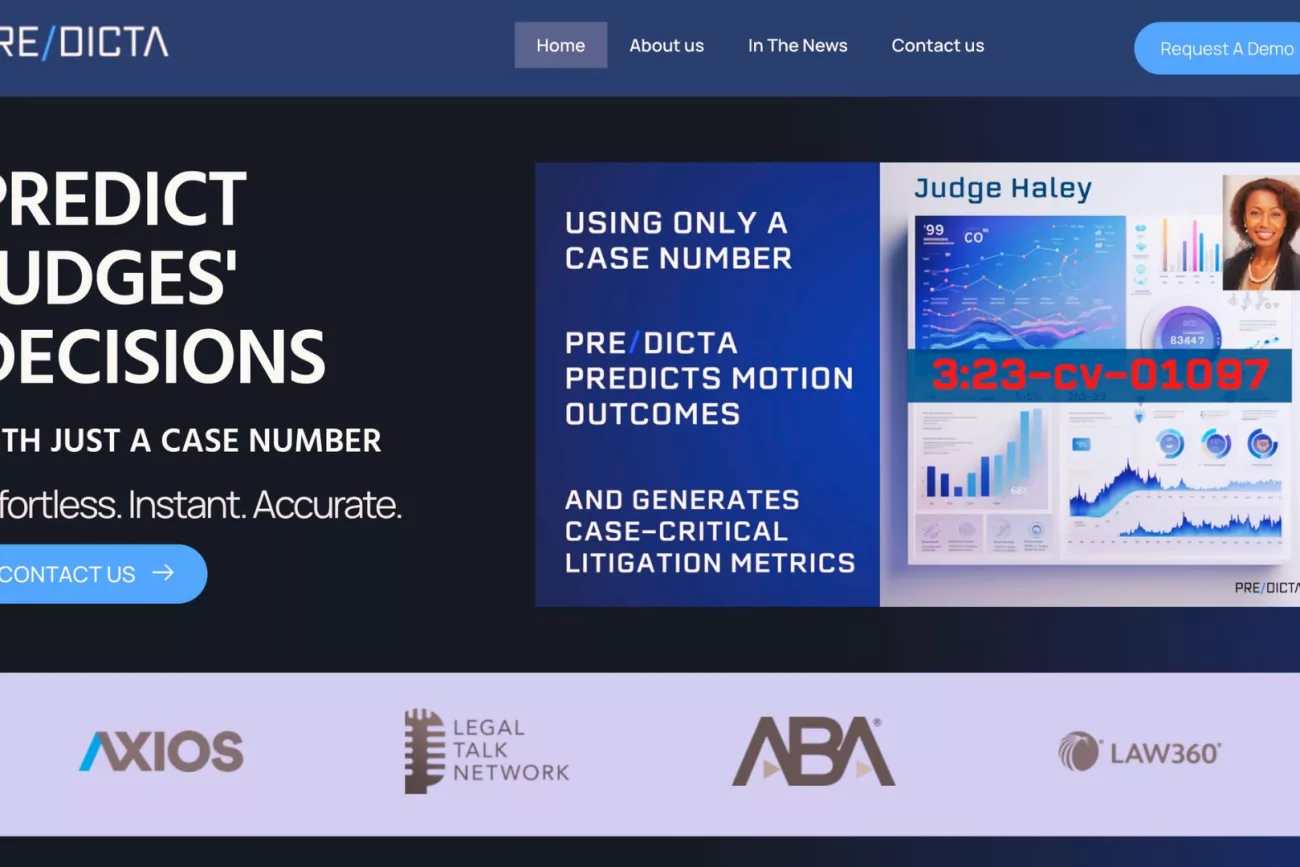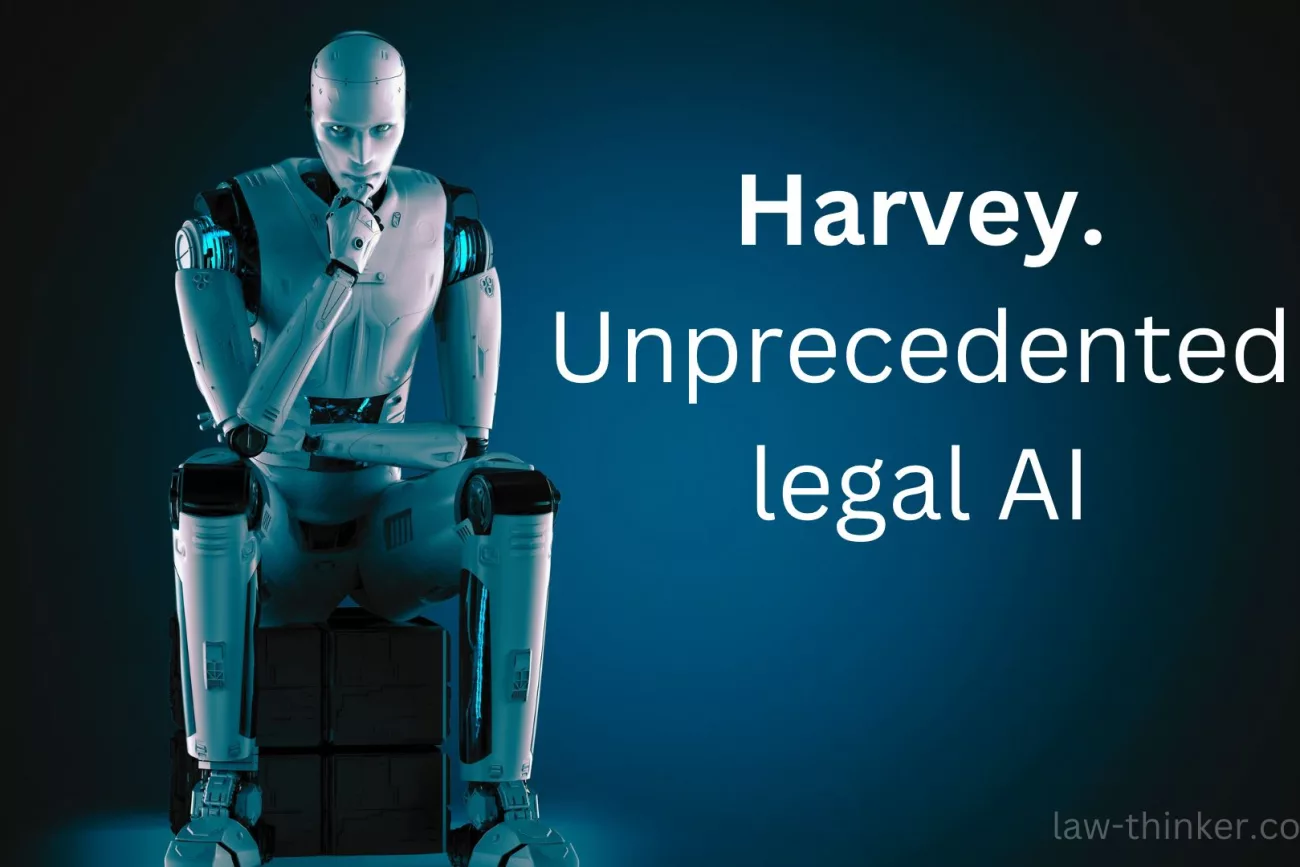Key Points
- AI’s Breakthrough in Legal Contracting: Luminance’s AI demonstrates the potential to autonomously negotiate contracts, challenging traditional legal processes.
- Efficiency vs. Ethics Debate: The technology offers increased efficiency but raises ethical questions about the role of human judgment in law.
- Varied Industry Reactions: The legal community is divided, with some praising the innovation for its efficiency and others expressing concerns over the loss of essential legal skills.
- Uncertain Future: The industry faces a dilemma in fully embracing AI, balancing the promise of technology with preserving the human element in legal practice.
Malpractice Lawyer for Patient Abandonment in NYC
Mike Ruggles Founder & CEO Instagram Linkedin Follow me on Instagram & LinkedIn for exclusive
⚖️ Transforming Solo Law Practice with AI: A Must-Read Guide
Discover how AI is revolutionizing solo law practices. Boost efficiency, client satisfaction, and ROI. Embrace
4 Key Lessons from Tali Green’s Legal Tech Triumph
Discover Tali Green’s journey in revolutionizing legal tech with Goodfact. Learn key insights for transforming
🤖 AI Negotiators: The Future of Legal Contracts or a Legal Ethical Quagmire? 🤖
Are Lawyers Becoming Redundant?
In a bold leap for AI technology, Luminance’s Autopilot has done the unthinkable – negotiating contracts without any human interference. But is this a cause for celebration or concern in the legal fraternity?
The AI Revolution in Legal Contracting
The Big Bang Moment: Picture this: two AI systems at Luminance’s London headquarters, embarking on a groundbreaking journey to negotiate a Non-Disclosure Agreement (NDA) – entirely without human intervention.
This isn’t science fiction; it’s a tangible reality that raises both eyebrows and questions. Is this the dawn of a new era in legal tech, or are we opening Pandora’s box of unforeseen legal complexities?
The Tech Behind the Magic: Luminance’s AI leverages a proprietary large language model (LLM), which is essentially the brain behind its operation. This LLM isn’t just a fancy algorithm; it’s been trained on vast amounts of legal data, enabling it to parse, interpret, and negotiate contracts with what appears to be human-like understanding.
But here’s the million-dollar question: Can this AI truly grasp the nuances of legal language, which often hinges on context, precedent, and subtle interpretation? Consider a real-world scenario where contract terms are ambiguous or where legal precedent plays a key role. Can AI navigate these waters with the same adeptness as a seasoned lawyer?
The Controversy: Efficiency vs. Ethics
The Efficiency Argument: In a fast-paced world, Luminance’s AI promises a legal utopia of sorts – slashing the hours lawyers spend poring over contract negotiations.
Picture a legal team, typically spending weeks on end negotiating terms, now witnessing AI accomplish this in mere minutes. This isn’t just about speed; it’s about revolutionizing workflow efficiency and potentially transforming the legal landscape.
The Ethical Debate: Here’s where it gets thorny. When AI takes the wheel in legal negotiations, we’re left pondering profound ethical implications. What happens to the human element – the cornerstone of legal practice? Is there a risk of depersonalizing legal processes to a point where the essence of jurisprudence is lost? Consider situations where empathy, moral judgment, and ethical considerations play a crucial role – can AI replicate these quintessentially human attributes?
Legal Analysis: An Expert’s Take
Practical Implications: While the tech wizardry of Luminance’s AI is impressive, its real-world application in complex legal scenarios remains a topic of debate. Law is not just about the text; it’s about understanding the spirit and context.
Take, for example, a case where contractual obligations intersect with evolving legal standards or where cultural nuances play a pivotal role. How will AI navigate these subtleties which often require human insight and judgment?
Historical Context: The legal field is no stranger to technological disruption. From the advent of electronic document management to the use of AI in legal research, technology has continually reshaped legal practice. However, the question stands: Does the autonomous negotiation by AI represent a leap too far?
It brings to mind the transition from paper to digital filing systems – a change that was initially met with skepticism but eventually became the norm. Are we at a similar inflection point with AI in legal negotiations?
Industry Reactions: From Awe to Anxiety
Early Adopters’ Praise: For some in the legal industry, Luminance’s AI is nothing short of a miracle. They point to its ability to dramatically reduce the time and resources spent on routine contracts.
Imagine a world where legal professionals can focus on higher-order legal strategies and complex negotiations, leaving the mundane to AI. This isn’t just about efficiency; it’s about fundamentally altering the role of lawyers in contract law.
The Critics’ Concerns: But not everyone is onboard. Critics warn of a potential slippery slope where reliance on AI could erode fundamental legal skills. They argue that negotiation is an art, honed through years of experience and human interaction.
For instance, negotiating a sensitive business deal or a delicate employment contract often requires intuition, emotional intelligence, and a human touch – qualities that AI, in its current form, cannot replicate. Are we risking the very essence of legal practice for the sake of technological advancement?
The Future: Legal Utopia or Dystopia?
As the legal community stands at this technological crossroads, the path forward is fraught with both promise and peril.
- Predicting the Future: The potential for AI like Luminance’s Autopilot to become a staple in legal operations is immense. Imagine AI streamlining due diligence, reducing the time for contract review from weeks to hours, akin to how online legal databases transformed legal research. However, this bright future is clouded by concerns about AI’s limitations in handling complex, nuanced cases. Will the legal profession embrace this tech fully, or will a hybrid model prevail, combining AI efficiency with human oversight?
- The Global Impact: The implications of AI in legal contexts indeed transcend national boundaries. Different jurisdictions with varying legal principles and cultural nuances present a complex tapestry for AI to navigate. Consider the GDPR in the EU, which imposes strict data protection regulations. How will AI-based contract negotiation align with such privacy concerns? The international legal community will have to grapple with harmonizing AI technology with diverse legal systems and ethical standards.
A Closer Look: Luminance’s AI in Action
Peeling back the layers of Luminance’s AI technology reveals a sophisticated blend of computational power and legal understanding.
- AI’s Understanding of Legal Jargon: Luminance’s AI attempts to replicate a lawyer’s ability to interpret legal language and concepts. But how close does it get to the real thing? For instance, in a cross-border M&A transaction involving multiple legal systems and terminologies, can AI accurately navigate the subtleties and legal implications as adeptly as a human lawyer who brings years of experience and contextual understanding?
- The AI Negotiation Process: The AI’s process of negotiating contracts – identifying contentious clauses and redrafting terms – is impressive. But does it possess the finesse and tact of a human negotiator? Consider high-stakes negotiations where understanding the opposing party’s motivations and emotions can be crucial. Can AI replicate this level of human insight and adaptability?
The Legal Community’s Dilemma
The advent of AI negotiators has triggered a spectrum of reactions in the legal world, ranging from enthusiasm to deep-seated concern.
- The Optimists’ View: Many view AI as the harbinger of a new era in legal efficiency and innovation. They envision a future where lawyers are freed from the drudgery of routine tasks, allowing them to focus on more complex and strategic aspects of legal work. This vision is not unlike the transformation seen with the introduction of electronic discovery tools, which automated much of the labor-intensive process of sifting through documents.
- The Skeptics’ Standpoint: On the flip side, there’s a growing chorus of concern. Skeptics worry about AI’s ability to fully grasp the nuances and ethical considerations inherent in legal work. They point to the risk of data breaches and the potential erosion of lawyering as a skilled art. Consider the delicate balance required in family law cases or the nuanced judgments in human rights litigation; can AI uphold the human element crucial in such scenarios?
Join the Discussion
In this pivotal moment in legal history, every voice in the legal community can help shape the future.
- Share Your Thoughts: Whether you embrace AI as the future of legal practice or hold reservations about its impact, your insights are invaluable. Engage in this crucial conversation to help steer the direction of legal tech.
- Stay Informed: The landscape of legal technology is ever-evolving. Stay ahead of the curve by signing up for our newsletter, where we delve into the latest debates, developments, and breakthroughs in legal tech.
The Verdict Is Still Out
As Luminance’s AI steps into the realm of contract negotiation, the legal world watches with a mix of anticipation and apprehension. Will AI negotiators become indispensable tools, or will they remain a controversial experiment in the annals of legal tech?
🔥 Navigating the AI Legal Landscape 🔥
Whether Luminance’s AI represents a seismic shift or a fleeting trend, one thing is clear: the legal profession must navigate this new terrain with both eyes open. The debate is just beginning, and your role in it is crucia
Share this post
Frequently Asked Questions (FAQs)
Q: What is Luminance’s Autopilot?
A: Luminance’s Autopilot is an AI system that can autonomously negotiate contracts, performing tasks typically handled by legal professionals.
Q: How does Luminance’s AI understand legal language?
A: It uses a large language model trained on legal data, enabling it to interpret and negotiate contracts with a level of understanding similar to a human lawyer.
Q: What are the ethical concerns surrounding AI in law?
A: Ethical concerns include the potential erosion of human judgment in legal decisions, privacy risks, and the impact on the traditional practice of law.
Q: Can AI replace human lawyers?
A: While AI can automate routine tasks, it currently lacks the ability to replicate the nuanced judgment and empathy of human lawyers, especially in complex cases.
Q: What is the future of AI in legal practice?
A: The future may see a hybrid approach where AI enhances efficiency in legal tasks while human lawyers focus on more complex, strategic aspects of the law















